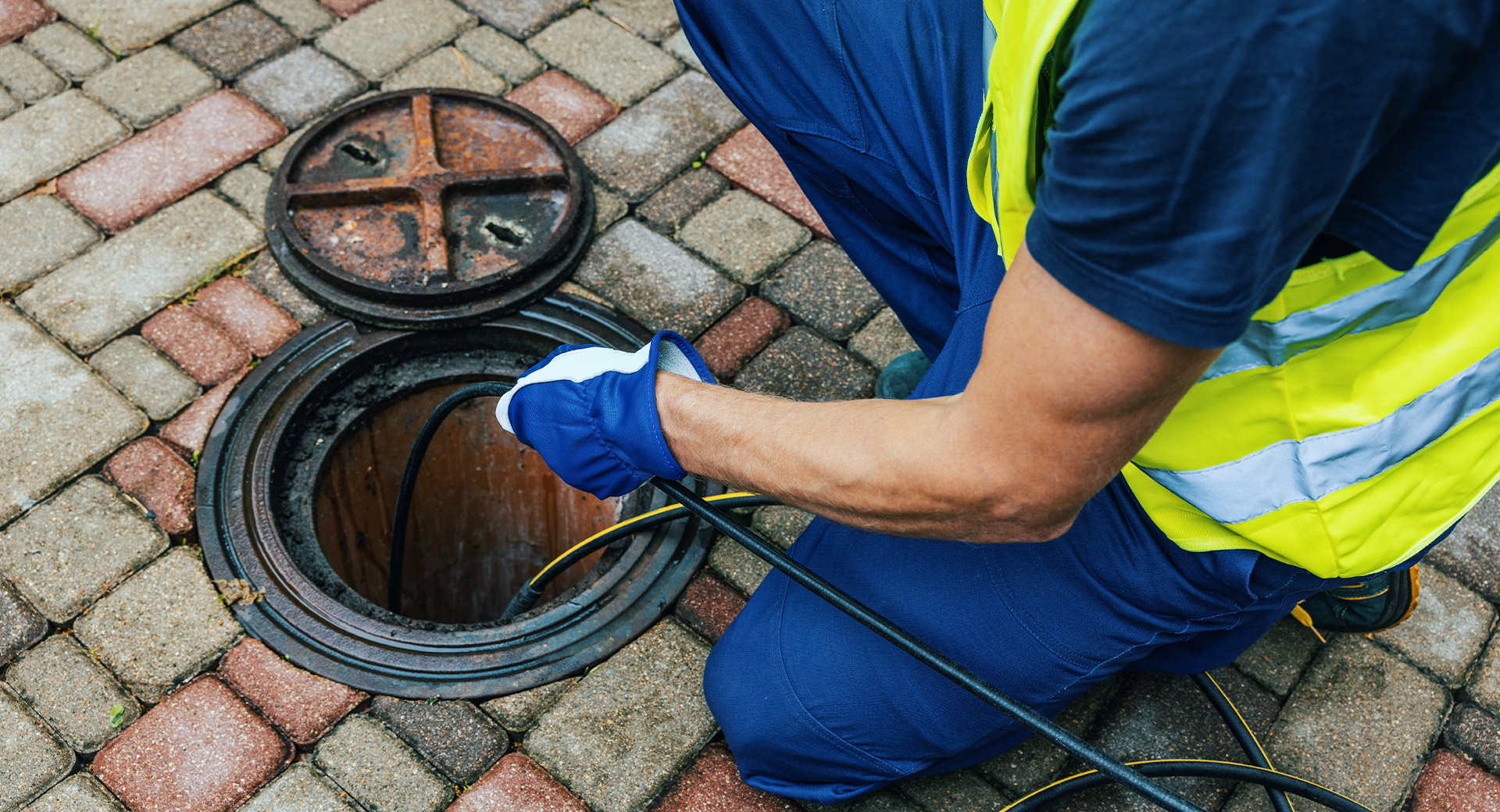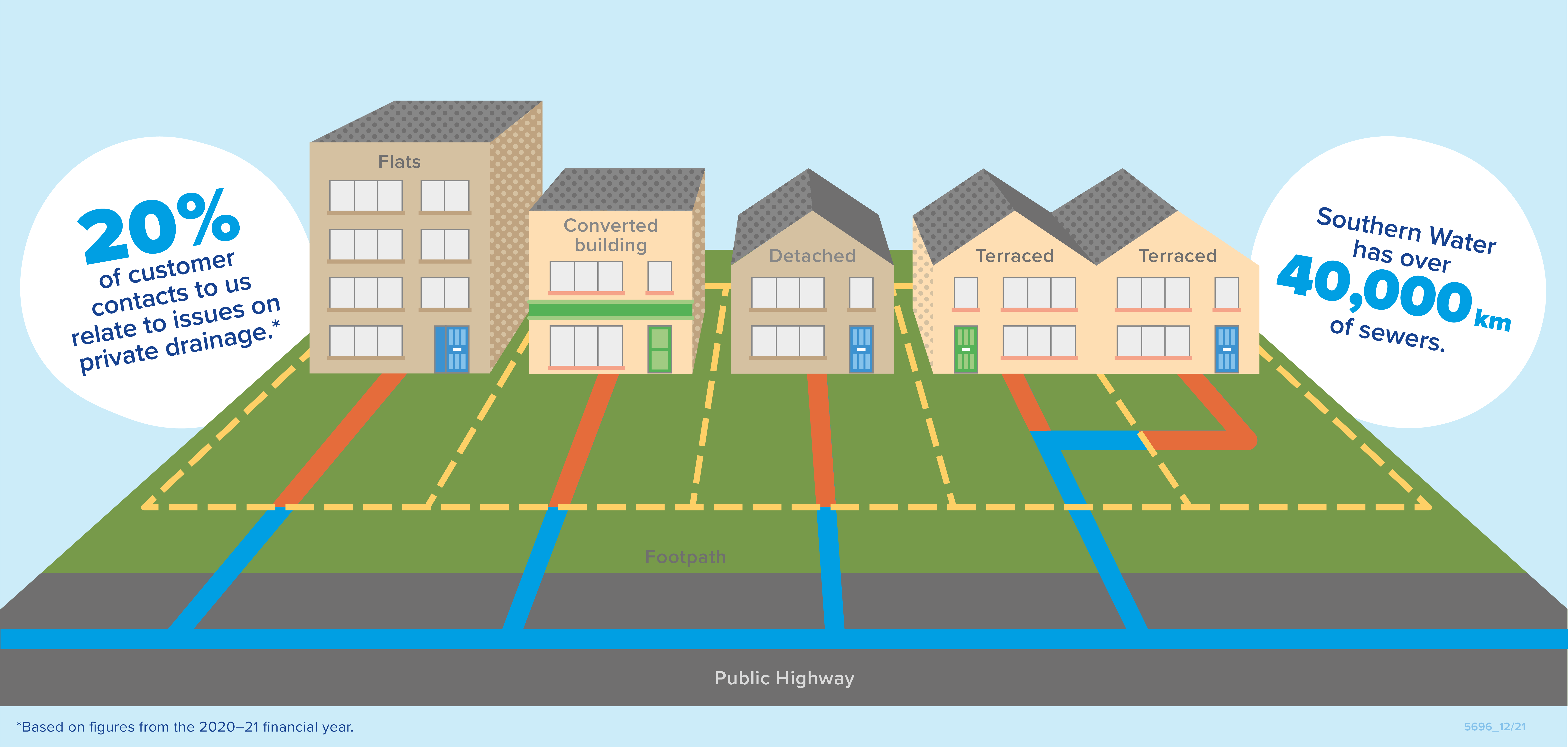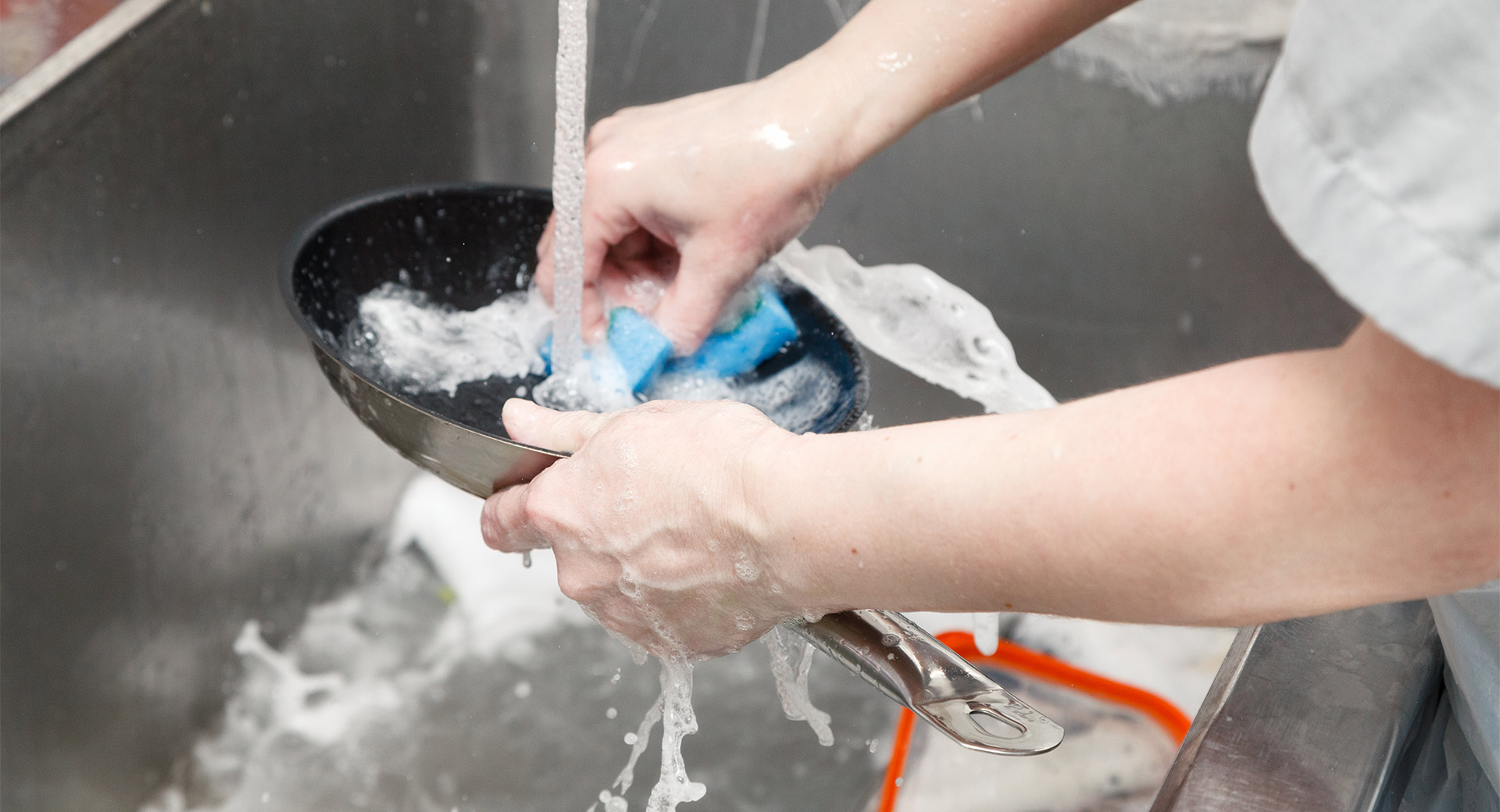How do I know if I have a blocked drain?
Typical signs of a clogged sewer line in your home include gurgling noises or water levels rising. These symptoms can come from anywhere where water leaves the house, such as a toilet, sink, washing machine or dishwasher.
Who is responsible for what?
How you deal with your blocked drain will depend on whether it’s caused by a blockage in the main public sewer line, or in your own household system.








